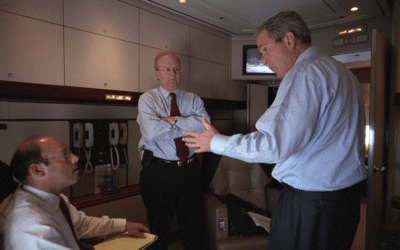In June of 1971, President Richard Nixon ordered:
When traffic in narcotics is no longer profitable, then that traffic will cease. Increased enforcement and vigorous application of the fullest penalties provided by law are two of the steps in rendering narcotics trade unprofitable. But as long as there is a demand, there will be those willing to take the risks of meeting the demand. So we must also act to destroy the market for drugs, and this means the prevention of new addicts, and the rehabilitation of those who are addicted.
It’s no surprise that America’s dimwitted 37th President – the man whose economic policies inspired Milton Friedman to say “we’re all Keynesians now” – was oblivious to the amount of pain his “war on drugs” would cause. But even America’s brightest academics and commentators could not have foreseen the economic carnage, civil unrest, death, and destruction that would occur when one President’s “war on drugs” turned into a 46-year war on the American people.
It is impossible to give each unintended consequence of the drug war the proper amount of attention without writing several books on the subject. But on the eve of the 46th anniversary of Nixon’s “war on drugs,” it is certainly time to reevaluate the effectiveness of the war and discuss some of the unintended consequences of Nixon’s policies.
The Immorality
To understand the immorality of the drug war, we must start by asking whether regulating what the American people choose to put in their own bodies is a legitimate role of the United States government in a “free society.” The American people are supposed to have the right to “life, liberty, and the pursuit of happiness” so long as they do not infringe upon the rights of others. Maybe the question should be asked differently.
Are those who choose to use marijuana, cocaine, and heroin infringing upon others’ rights to life, liberty, and the pursuit of happiness?
The reality is that so long as drug users are not forcing others to use drugs or using violence against others – both of which are actual crimes – even those who have severe addictions are not infringing upon the rights of others. Yes, some of these individuals may be hurting themselves, but the question we must ask is:
Is the best way to treat people with severe psychological disorders to lock them in cages with violent criminals?
If it is, then perhaps we should start locking 14-year-old children who slit their wrists in cages for hurting themselves. Or maybe we should treat the nonviolent “criminals” in our society who have severe addictions like anyone else who chooses to harm themselves. Maybe we should discourage the violence of the drug war and encourage a much more peaceful solution – rehabilitation.
Nixon’s Economic Dementia
Since Nixon declared the “war on drugs” in 1971, more than $1 trillion in federal and state taxes have been spent on the war. How much would it take to “win” the war on drugs? Another trillion? Five trillion? Ten? What if just half of the $1 trillion spent on the violent war was dedicated to treating addiction? Would the United States still have the “drug problem” it has today?
Never mind the opportunity costs of the drug war, Nixon’s policy was economically demented in the first place. Nixon’s idea that prohibition would make drug production unprofitable was simply outrageous. Unfortunately, no one was around to tell him that before he launched his disastrous war on the American people.
When there is demand for a good, prohibition will only restrict its supply in the short-run but when the supply decreases, prices are driven up. The higher prices then send immediate signals to entrepreneurs who decide to enter the market in hopes of making a profit. Over time, as new suppliers enter the market, the supply increases again and the price of the good falls again. Put simply, prohibition only restricts prices in the short-run, drives prices up, and makes selling drugs temporarily more profitable.
While Nixon’s “war on drugs” did not restrict the supply of drugs and make the sale of drugs less profitable, the prohibition of drugs did produce negative social consequences. By prohibiting the sale of certain drugs, Nixon’s drug war effectively attracted real criminals to the drug trade.
When individuals have the liberty to transact freely, the producer has property rights and his or her transactions are protected by the law. On the other hand, when in the sale of a good is prohibited, the buyer and seller have no protection under the law and must use means other than public courts to settle their agreements.
Since drug transactions are not protected by law, there are few institutions in place to settle disputes between drug dealers and consumers and thus, there is an incentive for drug dealers to use force to protect their property and enforce their contracts. Combined with the potential for extreme profits and the risk inherent in the drug trade, the perverse incentives created by the absence of property rights leads to substantially more violence than there would be in a free drug market.
End the War on the American People
Not only is there a never-ending list of consequences created by the war on drugs, the inhumanity and immorality of the consequences is virtually impossible for just one mind to comprehend. From the militarization of the police to the invasion of privacy, destruction of liberty, decline of American culture, and disproportionate incarceration of minorities, the results of the “war on drugs” plague our society.
The American Civil Liberties Union (ACLU) reports there have been roughly 45,000 SWAT raids each year since the mid-2000s, the majority of which have been drug searches. Given the fact that the extremely violent drug lords – the Pablo Escobar’s and El Chapo’s of the world – account for only very small percentage of the drug-dealing population, the reality is that American civil liberties are being compromised mostly in the name of locking up small-time, mostly nonviolent pot dealers.
What a brilliant use of the American peoples’ hard-earned money.
Then there’s the fact that although black, white, and Latino Americans use illegal drugs at roughly the same rate – whites use them more in many cases – blacks and Latinos are locked up far more frequently and serve longer sentences than whites. Some even go so far as to suggest the drug war is rooted in racism and the consequences were intended. To be fair, at least they’re not denying the fact that the outcomes of Nixon’s policies have been horrific.
Furthermore, the idea that a “free society” (the United States) locks more of its citizens in cages than an “oppressive” society (China) with a much greater population cannot be ignored. Is this because the American police force is more efficient at catching and incarcerating criminals? No, it’s because over 50 percent of the US prison population consists of drug offenders.
As a final side note, we are approaching the 46th anniversary of Nixon’s declaration of “war on drugs” this month. To put things in perspective, the US drug war (46 years) – fought by the US government against the American people – has lasted almost as long as America’s nine longest foreign wars combined (roughly 47 years, 2 months). What a sobering statistic.
To recap, President Nixon’s “war on drugs” has proven to be anything but a war on the drug cartels, which are doing quite well right now. In fact, Nixon’s drug war has made selling drugs more profitable and increased violence in the drug trade. Not to mention, the war has undermined the American ideal of a free society, locked a generation of entrepreneurs and productive workers in cages, and done very little to address the problem of addiction.
I propose that to celebrate its 46th anniversary this month, we end America’s so-called “war on drugs.”






























